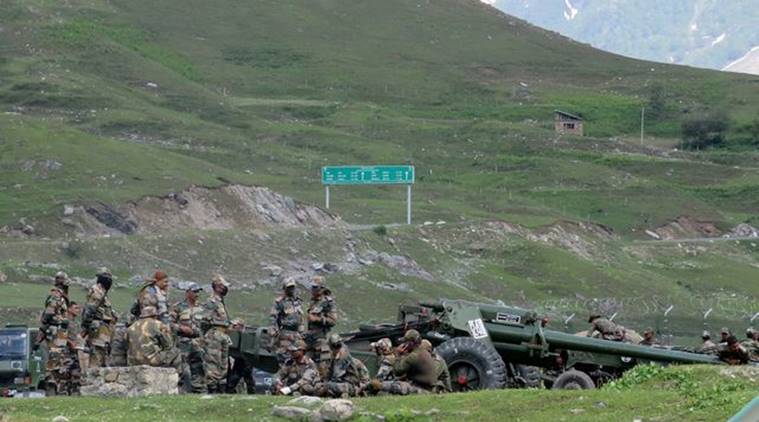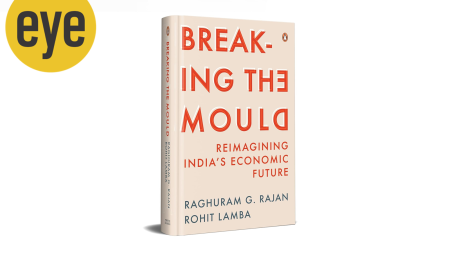- India
- International
Army’s protective gear has Made in China link, Niti member says relook
After Galwan clash, MoD contacted firms for 2 lakh bullet-proof jackets.
 Indian army soldiers rest next to artillery guns at a makeshift transit camp before heading to Ladakh, near Baltal, southeast of Srinagar, June 16, 2020. (Source: Reuters)
Indian army soldiers rest next to artillery guns at a makeshift transit camp before heading to Ladakh, near Baltal, southeast of Srinagar, June 16, 2020. (Source: Reuters)
On June 18, two days after the violent faceoff in the Galwan Valley, the Ministry of Defence contacted manufacturers of protective gear and bullet-proof jackets worn by Army personnel in forward areas, including in Leh, for “urgent” reinforcement of supplies — estimated at 2 lakh units. Follow India-China border dispute LIVE updates
What has added a twist to this is the fact that a majority of the existing Original Equipment Manufacturers (OEMs) use Chinese raw materials. This includes the company that got the 2017 contract — it’s in the delivery stage — for supplying 1.86 lakh bullet-proof jackets to the Army. Announcing the Rs 639-crore contract to SMPP Pvt Ltd, Defence Minister Rajnath Singh had said, in Parliament, that there was “no embargo” on the import of raw materials from China for the manufacture of protective jackets for the Army.
With the changed circumstances, there are calls for a rethink. Niti Aayog member and former chief of the Defence Research and Development Organisation V K Saraswat has urged a “re-look” at these imports.
Read | Galwan faceoff: LAC remains on edge
Speaking to The Indian Express, Saraswat said: “A year ago, we discouraged import of Chinese raw materials for critical items such as bullet-resistant jackets for their doubtful quality. We had even called the company which had the existing Army contract and told them to ensure testing of all imported raw materials at their end. Now I feel there should be a clear re-look at all such imports which are made from China just because of the price differential. We should not encourage import of Chinese raw material for strategic sectors like telecom and protective gear including bullet resistant jackets worn by our troops.”
On Saturday, the PHD Chamber of Commerce and Industry, which was earlier part of a committee formed by the Department of Defence Production on “indigenisation of critical raw materials for manufacturing defence products,” sent a letter to the Defence Secretary on the subject of “renouncing the usages of Chinese products.”

Read | Analysts say India has geographical advantage in air power
That letter specifically mentions imports of High Performance Polyethylene (HPPE) from China for manufacture of bullet-resistant jackets. Citing steps taken by the Telecom Ministry to “avoid Chinese equipment in upgradation” it says: “Generally all the manufacturers (of protective gear) are importing this material from companies based in the Republic of China and very sizeable foreign exchange is diverted to these companies…we request you to kindly make a policy to reduce dependence on the Chinese materials substantially so that the security and safety of our fighting soldiers is not compromised…”
Meanwhile, industry representatives said that besides HPPE and fabric, boron carbide and other ceramics were also imported from China for manufacture of bullet-resistant jackets. Said S C Kansal, Managing Director of SMPP Pvt ltd, which is executing the current contract to supply bullet-resistant jackets to the Army: “Yes, we are reliant upon imports from China but will move with the mood of the country. If required we will look at alternative routes for imports and we have a vast Research & Development wing for doing so.”
Read | Ex-IAF chief: Prudent option is to de-escalate situation diplomatically
So dependent on imports on China, the industry waits for MoD directions. Mahendra Gupta, Managing Director of Star Wire (India) Limited, said that his firm uses Chinese material for manufacturing protective gear but given the killings and the standoff, “the protective gear industry needs a clear direction on imports of critical raw materials from China and what is permissible.”
Neeraj Gupta, Managing Director of MKU, said the firm imports raw materials from either US or European countries which pushes their prices up. “Chinese raw materials are 60%-70% cheaper than other international firms but this is a sector where quality of the gear and minimum loss of life on the frontlines is of utmost importance,” he said.
Apr 28: Latest News
- 01
- 02
- 03
- 04
- 05









































